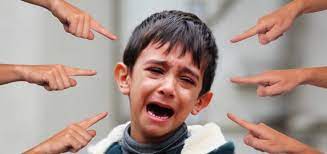
Having a childless marriage can be a difficult and emotional situation to navigate. It can create feelings of sadness, disappointment, and frustration.
If you’re struggling to cope with the reality of a childless marriage, it’s important to remember that you’re not alone. Many couples face the same situation, and there are ways to manage the emotions associated with it.
In this blog post, we will discuss some strategies for coping with the disappointment of not having children in a marriage.
Don't put your life on hold
Dealing with the disappointment of not having children can be incredibly difficult, but it's important to keep living your life. Don't allow yourself to become too overwhelmed by the situation and make sure that you take time for yourself. Keeping up with activities you enjoy, such as hobbies or sports, can help you find balance. And don't forget to spend quality time with your partner, too.
Having a positive attitude is essential. It can be tempting to give in to despair or sadness, but instead, focus on what you have and be grateful for it. Remember that childlessness doesn't define who you are, so don't let it dictate your future plans. Make sure to plan for the years ahead and keep pursuing the goals and dreams you have for yourself and your marriage.
Talk about your feelings
It’s important to express your feelings when you’re dealing with the grief of childlessness in marriage. It’s natural to feel a range of emotions including sadness, anger, disappointment, and even relief. Talking openly and honestly about these feelings with your partner, a trusted friend, or a counselor can help you to process them and move forward.
Try to be understanding and patient with each other as you both struggle with your emotions.
It’s okay to disagree or not see eye-to-eye on how to cope; take the time to listen and validate one another’s feelings without judgment. If you can, find healthy outlets to release any negative feelings you have; this could include exercising, journaling, or talking with a professional.
Acknowledge that it’s okay to have different coping strategies and be sure to check in with each other frequently to discuss your progress.
Seek support
No matter how strong you may be, it can be incredibly difficult to cope with childlessness in marriage. It’s important to remember that you don’t have to go through this alone. Talking to friends and family can help you feel understood and supported. It’s also beneficial to seek out professional help from a licensed counselor or therapist. This can provide a non-judgmental environment to discuss your feelings, as well as a platform to explore options and strategies to cope with the loss of not having children.
Additionally, joining a support group of individuals who are facing similar struggles can be an invaluable resource. Knowing that you aren’t alone and can turn to a community of people who understand what you’re going through can make a huge difference in your ability to cope with the situation.
Consider your options
When it comes to coping with childlessness in marriage, it is important to consider your options. You may decide to pursue alternative routes such as adoption, surrogacy, or fertility treatments. It’s important to explore all of your options before making a decision.
If you decide that adoption is the best option for you, there are many types of adoption available. Private adoption, agency adoption, and international adoption are all possibilities to consider. You can also look into foster care if you're open to taking care of a child temporarily until they find a permanent home.
If you choose surrogacy as an option, it’s important to understand the process and the legal implications. There are two types of surrogacy – gestational and traditional – and each has its own set of risks and costs.
Fertility treatments such as IVF and IUI can also be an option for couples struggling with infertility. These treatments can be expensive, but there are some financial options available for those who can’t afford them.
Ultimately, it’s important to make sure you are comfortable with whatever decision you make. Consider talking to other couples who have been through similar experiences and consult with a doctor or fertility specialist to get the best advice for your situation.
Focus on your relationship
Being childless can be a difficult adjustment for any couple, but it doesn’t have to mean the end of your relationship. While you may feel disappointed and overwhelmed by the lack of children in your life, it’s important to remember that your relationship is still intact and can be just as strong.
Try to focus on the positive aspects of your relationship. There are likely many reasons why you and your partner chose each other in the first place, and there are many more positive things about your relationship than the fact that you don’t have children. Remember that you both still need to support each other and nurture your relationship, even without kids.
Take the time to rediscover each other. Consider the things you used to enjoy doing together before children entered the picture. You may find that reconnecting with these activities gives you a newfound appreciation for your relationship.
It’s also important to remain open to new experiences. This could include trying something new or visiting places that neither of you have been to before. Being spontaneous and exploring together can help to strengthen your bond and keep your relationship interesting.
By taking the time to focus on your relationship, you can find a new appreciation for each other and your lives together. It may take some time to adjust to being childless, but with a little effort, you can make sure that your bond remains strong and loving.





















